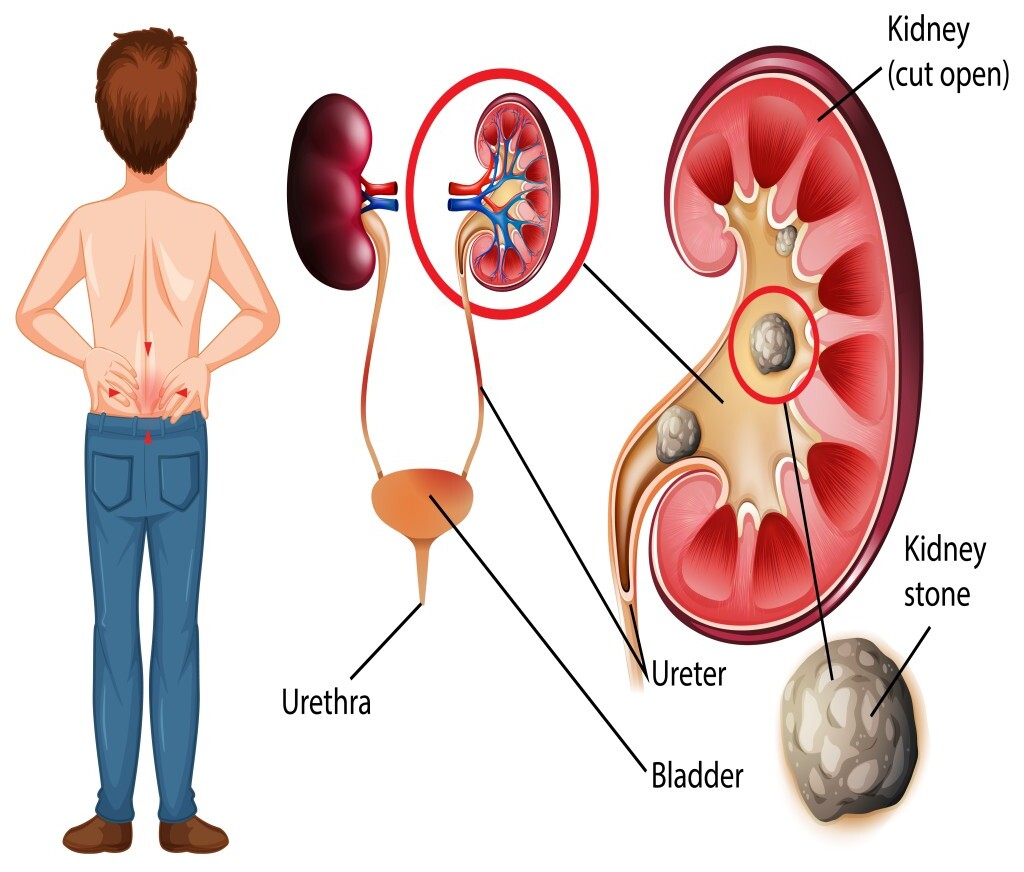Kidney stones

Kidney stones, formed by the crystallization of minerals in urine, can cause excruciating pain and potentially serious complications. Dehydration, dietary factors, genetic predisposition, obesity, certain medications, and urinary tract infections contribute to their development.
Treatment strategies encompass hydration, medication, lifestyle adjustments, medical procedures, and, occasionally, surgery. Adequate fluid intake, particularly water, helps dilute urine and prevent mineral buildup. Medications such as pain relievers, alpha-blockers, and thiazide diuretics aid in pain management and prevent stone recurrence. Lifestyle modifications include dietary changes to limit oxalate-rich foods, moderate calcium intake, increase citrate-rich foods, and maintain a healthy weight.
Medical interventions range from Extracorporeal Shock Wave Lithotripsy (ESWL) and ureteroscopy to Percutaneous Nephrolithotomy (PCNL) for larger stones. These procedures break down or remove stones, facilitating passage or extraction. In severe cases, surgical intervention may be necessary.
Follow-up care involves monitoring for stone recurrence, adjusting treatment plans, and providing ongoing support. Collaboration between patients and healthcare providers is vital in developing personalized treatment strategies tailored to individual needs and risk factors.